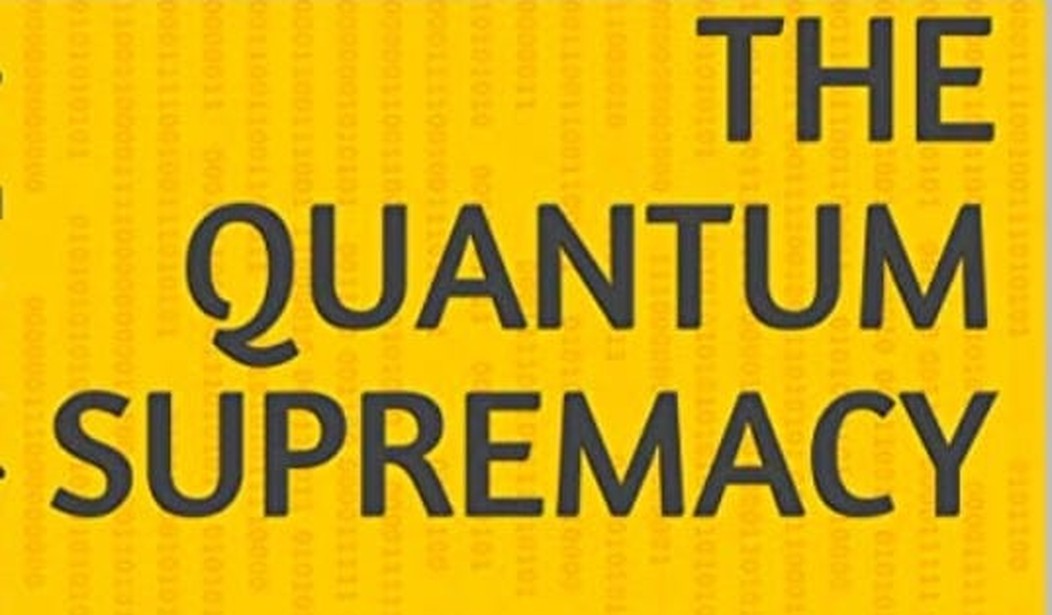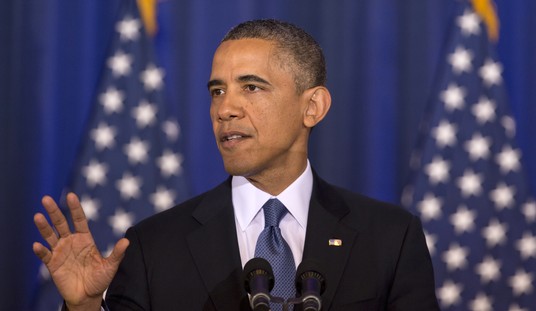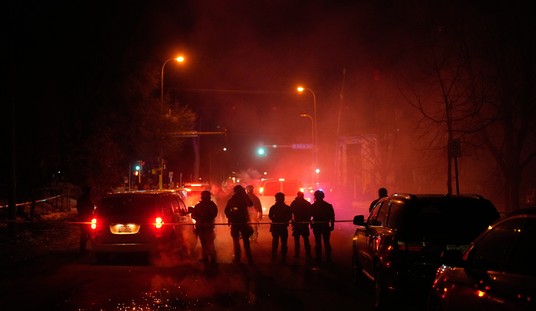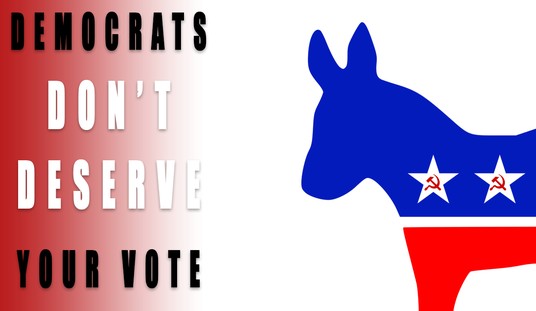Below is the second serial installment of my novel The Quantum Supremacy, a high-tech duel of wits between China’s Ministry of State Security and the Central Intelligence Agency. The complete book is available in an Amazon Kindle edition here.
In Part One, Chinese intelligence has ambushed a group of militant Uyghurs–a Turkic Muslim people who form the majority in China’s Western province of Xinjiang–returning from Syria, where they fought for al Qaeda in the civil war. Chinese agents have captured and interrogated the leader of a Uyghur terrorist cell who took part in the Kunming Railway Station Massacre of 2014.
Prelude II: The Ministry of State Security
Geng Huichang kept a small office in the Ministry of State Security’s satellite headquarters in Beijing’s Western Garden next to the Summer Palace in Haidian. The chief of Chinese intelligence was one of the country’s most powerful men, but he affected the demeanor of a minor provincial official, modest and avuncular. Truth was a fragile flame, and ostentation obscured it. The minister’s car had met the military transport that brought the major from Xinjiang to Xijiao Airport in western Beijing. He had flown six hours across China, and it was past 9 p.m. when he sat down. Geng took a bottle of 12 year old Bruichladdich from his desk drawer and poured shots for himself and his guest. He set a small pitcher of distilled water next to them and said, “Just a drop, to open the flavor.” Geng lit a Zhonghua cigarette and sipped his whiskey.
“We do not want to cause undue concern among the Chinese people,” he told the major at length. His tone was that of a kindly but concerned uncle who wished to protect the family from an awkward state of affairs. “After the massacre at Kunming Station, it would frighten them to know that terrorists with guns and bombs tried to cross the border. Let the Kyrgyz tell the media that they killed infiltrators who came into their country from China. I assume that the actual guards involved will exercise discretion?”
“They always have, Minister,” the major replied. “Their livelihood, that is, our supplement to their pay, depends on it.”
“Do you think the Americans were involved?”
“Please do not be cross with me, Minister, if I express my professional opinion that they were not. I personally conducted an enhanced interrogation of the terrorist who was to guide them into China. Of course, he confessed to every manner of CIA connection, but none of them are plausible. He was also questioned under hypnotic drugs. My conclusion is that his contact was Turkish, not American.”
“We have verified that independently, major. Turkish intelligence alerted us to the attempted terrorist infiltration, and claimed that a rogue element in their own foreign service assisted them. I understand from your report that such a person was present during the countermeasures and regrettably did not survive. The Turks have been playing games with their Uyghur cousins for years, but it has been made clear to them that if they were to continue, they would regret it.”
“If I may be so bold, Minister, what persuaded them?”
“That’s above your pay grade,” grunted Geng, and sipped his Scotch. China’s military attaché in Ankara had asked a Turkish air force general whether he had seen the Youtube videos of Syrian rebels shooting down government fighter jets with Chinese-made FN-6 shoulder-fired anti-aircraft missiles.[1] The general had, and he also knew that the Saudis had given the weapon to Sunni rebels fighting the Assad regime, the ally of Saudi Arabia’s arch-enemy Iran. “We are doing our best to make sure that the FN-6 never falls into the hands of the Kurdish militia in the northeast of Syria,” the Chinese officer had said. “Of course, we cannot guarantee that a few MANPAD’s will not fall off the back of the truck.” He had the Turk’s undivided attention. “On a completely different topic,” the Chinese officer continued, “we would be most grateful for information about the movements of Uyghur terrorists training in Syria, especially if they are returning to China.” The Turks got the message and signed the death warrant of one of their operatives in Kyrgyzstan.
“The Turks,” Geng said at length, “only reached the Black Sea because we drove them out of China during the Ming Dynasty, and time has failed to civilize them. The Uyghurs are ignorant. Many of them do not learn the characters. They prefer to live in dirt and poverty like their ancestors. They understand nothing but bribery and butchery.” He stubbed out his Zhonghua and coughed.
“Minister,” the major said, “I am not sure whether I have exhausted all avenues of investigation. The fact that the Turks ran the operation on the ground does not rule out the possibility that the CIA was behind it.”
“Major Ma,” said Geng, “you are thinking like a Chinese intelligence officer, and that is commendable. We tend to view the West with a kind of paranoia, and well it is that we do so, for whenever we have trusted the West it has gone badly for us. But I do not think that the problem lies in your interrogation technique. It does not matter whether CIA directed this particular gang of terrorists towards the Torugart Pass or not. They know and we know that they have the capability to set terrorists loose in China. My counterpart in at the CIA knows how much trouble the Mujahidin caused Russia in Afghanistan. There are only ten million Uyghurs among 1.4 billion Chinese, but a few more attacks like the knife murders at Kunming Station would hurt the Party’s credibility. If we can’t protect civilians from terrorists, what are we good for? That cannot be tolerated. The question isn’t what the CIA is doing, but what it might be tempted to do in the future.”
“What do you think the CIA might do, Minister?,” the major ventured. It was impertinent to query a minister of state, but Geng was in an expansive mood and the major was eager to learn.
Geng leaned back in his chair and locked his fingers behind his head, his eyes closed. “Twelve million Uyghurs are a minor irritant. There another ten million Hui Muslims scattered through China. But to our South, Islam is a sleeping serpent. The three hundred million Muslims of Indonesia long have kept their own ways, but there are radical Muslims there now who demand a Sharia state. In 1998 they instigated riots and murdered hundreds of ethnic Chinese. They are agitating for Sharia law in Indonesia. They might make common cause with the Muslim rebels of the Philippines in Mindanao, and the three million Muslims in the South of Thailand. The Thais have contained Muslim rebels so far, but they are fighting on the border of Malaysia. The Malays control the politics of the country and overseas Chinese control the economy, and it is a delicate balance. What if the war on Malaysia’s frontier with Thailand became the cause of radical Muslims in Malaysia? What if the Muslim rebels in Mindanao demanded a separation from the Catholic Philippines and a union with Malaysia? What if Muslim radicals in Indonesia held the Chinese community hostage to support them? China would have a series of wars on its southern border rather than a stable and prosperous set of client states. The Uyghur insurgency is like a tiny melanoma on the skin. It looks insignificant, but if it enters the blood system it can infiltrate the major organs and kill the body.”
“Are the Americans agitating among the Muslims against us, sir?”
“Some of my colleagues think so. I’m not sure. I deal in evidence, not supposition. In my opinion we have more to fear from American stupidity than from American guile. When the Americans invaded Iraq, they destroyed the only Sunni Muslim regime in the Levant. They insisted on majority rule, so they got majority rule by the Shi’a Muslims of Iraq, who are now the allies of Iran. The Iraqi Sunnis feared for their lives, and had no state to protect them, so they rallied around non-state actors like al Qaeda and ISIS. The Turks decided to dip their spoon into the soup and supported Sunni terrorists in Iraq and Syria. Our Uyghurs are Sunnis, and they have close ties to Turkey. Thousands of them left to join the jihad in Syria, maybe as many as 20,000.[2] Now they are coming back with weapons and they know how to use them.”
“How do we solve the problem?,” asked the major.
Geng Huichang shuffled back to his desk, sat down and resumed his paperwork. He half-turned to the major and said, “We will do what we have done with unruly barbarians on our borders for three thousand years. We’ll probably have to kill them all. Dismissed.”
A report in the news media the next day read:
A group of 11 ethnic Uyghur men from China’s western Xinjiang region have been shot dead after crossing into neighboring Kyrgyzstan, officials in the Central Asian republic said Friday, triggering calls for a probe into the killings amid concerns they may have been refugees fleeing “repression.”
Nine of them were gunned down by a special Kyrgyz border guard unit while two others were killed earlier by a local hunter who had spotted them in the mountains near the border on Thursday, Kyrgyz officials were quoted saying in reports Friday.
Acting head of the Kyrgyz border guards Raimberdi Duishenbiyev told reporters the 11 men appeared “to belong to an organization of Uyghur separatists,” the Associated Press reported.[3]
***
Chapter One: A Letter in Lemon Juice
Hong Kong, 2019
Paul Richetti queued up behind a Chinese woman of indeterminate age at the Wang Leung Bank’s automatic teller machine on Connaught Road. The instructions had appeared in the text messages on his boss’s Blackberry the day before, transmitted from a burner phone. Richetti was the newest Clandestine Services operative in Hong Kong. He had the straight black hair of his Sicilian father and the pale broad face and high cheekbones of his Hungarian mother, set in a head that seemed a bit too large for his slender body. He had all the components of a face, but they didn’t quite fit together: His eyes were set a bit too deep, his brow a bit too high, his nose a bit too large, his mouth a bit too wide and his chin a bit too short—not an unpleasant face, but the sort one easily forgot. He wore a gray Armani suit and an open-necked black shirt and looked like transplanted Eurotrash, or FILTH-Failed in London, Try Hong Kong.
The text message was addressed to “Rosebud,” and it gave instructions for a dead drop at the bank ATM. Paul watched as the slight woman ahead of him fiddled with the keypad, withdrew a few red banknotes, and took her receipt. She wore a luxuriant blond wig and enormous sunglasses, and a cheap printed dress with long sleeves. She put a slip of paper in the bin below the slot. Paul used his bank card to withdraw 500 Hong Kong dollars –about $60 American—and found the slip that the older woman had left in the bin. It was the size of a bank receipt and of the same flimsy paper. He took it home rather than to the consulate and held it up to the light. It was blank. In his kitchen—really an alcove in his studio apartment with a three-burner electric stove on top of a small refrigerator—he heated a saucepan and poured in a thimble’s volume of ammonia while holding the paper above it with tongs. The acrid fumes made him gag, and he backed away to the window. The slip of paper remained blank. He then dug an electric iron out of the back of a closet, heated it to the low setting, and placed the paper inside a folded cloth napkin. He passed the hot iron over the napkin and extracted the note. In brown letters of burnt lemon juice there had appeared: “Janguo Hotel 1330 Nov 11 downstairs ladies second stall from end.” The paper fluttered, and Paul became aware that his hand was shaking. He didn’t know what the message meant, but he understood that his life had changed.
Paul photographed the paper with the camera of an unused burner phone. He removed the memory card that held the image, and placed it behind the matches in a book from the Mandarin Hotel. With a tweezers he extracted the tobacco from a cigarette, then rolled the slip of paper tightly and fed it into the empty cylinder, and replaced the cigarette in its box. He walked out of his apartment into the Sheung Wan streets and took a tram to the consulate.
Paul walked into the station chief’s office. “You were expected here an hour ago,” snapped the fiftyish woman who had been head of the CIA’s small station in Hong Kong almost as long as Paul had known how to walk. With a pastel pants suit and short blonde hair, Deirdre Hollingsworth could have been a body double for Hillary Clinton. Paul put a finger to his lips, turned on the radio on the station chief’s desk, found a music station and turned up the volume.
“I think you’ll agree that I was right to extracted the message myself rather than handing it over to the lab,” he said. He took a cigarette from his pack, cut it open with a pen-knife, and unrolled the note. Color drained from her face as she read the few words and her breathing became very regular.
“Who else knows about this?,” she asked. Paul shook his head. “Is there any other copy of this?,” she asked again. Paul extracted the memory card from the pack of matches and placed it on the blotter in front of the station chief. She sat down and tried to gather her thoughts: The lemon-juice message quoted instructions for a rendezvous with one of the Agency’s few remaining assets in Beijing, codenamed “Rosebud,” three days hence. There was nothing more secret in Agency communications. How did it end up in lemon-juice letters on a slip of paper sitting on her desk? The station chief parsed the possibilities. The leak couldn’t have come from the agent, who was scheduled to get these instructions tomorrow in a brush pass on the Beijing subway. It couldn’t have come from the asset that the agent was supposed to meet. The other possibilities were unpleasant to contemplate.
The station chief thought for a long time and said: “You never saw this. You will not log this on any electronic system or mention it to anyone. You will get on the 1700 United Airlines Flight to Los Angeles, change for the redeye to Dulles, rent a car and hand deliver it to this address” – the woman scribbled out a street address in Falls Church. “You don’t tell anyone you’re leaving Hong Kong, you don’t call your mother, you don’t tell anyone – and I mean anyone – at the Agency. Don’t file a requisition for the airline ticket—use your personal credit card and we’ll reimburse you later. Talk to nobody and take the battery out of your Blackberry. Tell D/NCS what you did and saw, and whatever else you see fit, unless you’re going to say that the head of Hong Kong station is an idiot.”
Richetti gave her a puzzled glance, looked theatrically around the room, and declared in a stage whisper, “Your secret is safe with me.” The station chief looked at him murderously. “Don’t worry,” he added. “My mother is dead. What’s this about?”
“You’re not read in yet. That’s up to D/NCS. When he left she closed her office door and took a Xanax.
**
[1] https://www.youtube.com/watch?v=KG9Gre0KpGQ
[2] https://www.asiatimes.com/2017/05/opinion/chinese-uyghur-colonies-syria-challenge-beijing/?_=605184
[3] https://www.rfa.org/english/news/uyghur/kyrgyzstan-01242014175848.html










Join the conversation as a VIP Member